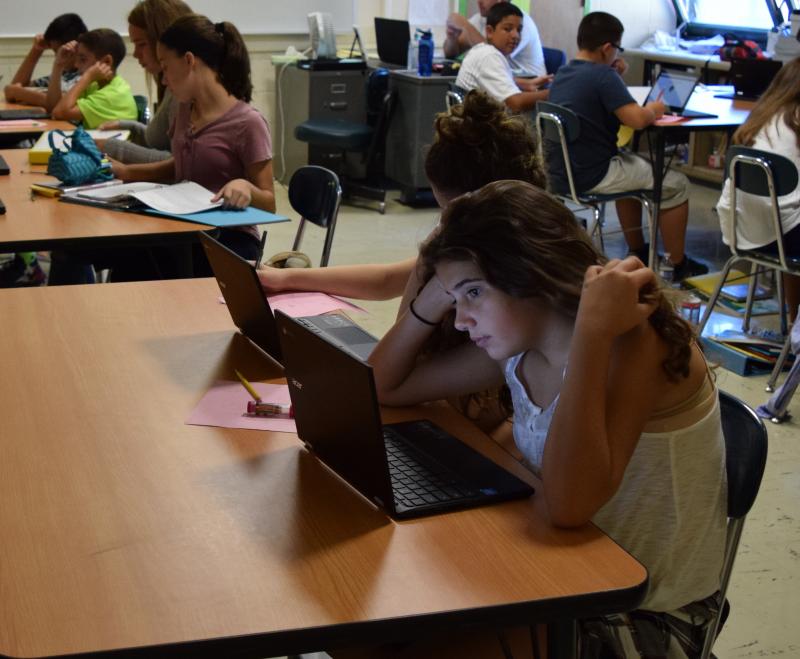Schools begin digital MCAS testing
Dartmouth’s first foray into the new computer-based “MCAS 2.0” test has so far resulted in no major problems.
The new standardized test does away with paper books and answer sheets used in the old MCAS and PARCC tests. Instead, students log in to a website using Chromebooks or lab computers to take English language arts and mathematics tests.
Elementary and middle school students started testing with the new system on April 3, while Dartmouth High School will stick to the paper test this year. By mid-May, 1,800 students will take 8,100 individual tests, because of the way they are broken up into subject and section.
“The kids are so comfortable with it. They hop on to the laptops and it’s like second nature to them,” said Jonathan Gallishaw, Dartmouth Public Schools Chief Technology Officer.
Behind the scenes, it’s required a lot of prep work for Gallishaw on every front, including hardware, software, and infrastructure.
“The most important part is building up the infrastructure. It doesn’t matter if you have the machines if you don’t have the proper Wi-Fi,” Gallishaw said.
That meant overhauling school wireless systems and increasing bandwidth, a multi-year project that cumulated with improvements to the middle school over the summer.
The biggest network strain came as students logged into the system for the first time. Traffic peaked at 200 megabits per second, using up about two fifths of the district’s total 500 megabit per second connection.
“It’s an unusual surge, but after students log on it throttles back down,” Gallishaw said.
On the hardware side, the district bought 700 new Chromebook laptop computers – inexpensive laptops that run Google’s online-focused software – over the summer. Leading up to test day, principals and teachers received training with the new platform, and went through each Chromebook to make sure they were in working order and fully charged.
“The prep work will get easier each year,” Gallishaw said, explaining that now that the district has a year of electronic testing under its belt, future years will be simpler. “It’s undeniable: it’s the future of testing. It just makes sense to do it this way.”
Once testing winds down, school administrators should expect test results much quicker than the old paper tests, giving administrators more time to sift through complicated results, he said.












